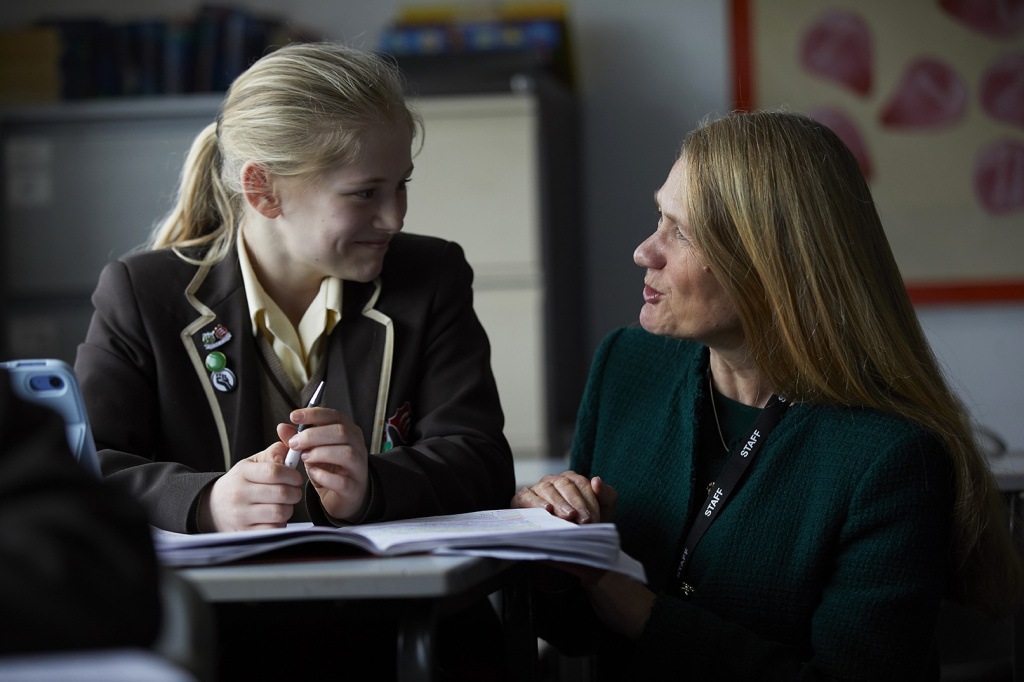
In September 2023, The Hertfordshire & Essex High School was awarded the English Speaking Union’s Oracy Culture Award – an award that recognises schools that have embedded a high-quality oracy provision across their work.
The journey that brought us to this point began at the height of the first COVID lockdown in 2020, when the school decided to make oracy a key priority and teaching and learning focus for the next three academic years. This decision was made well before the government began to talk about ‘COVID catch-up’ or ‘the COVID generation’. We recognised quickly that once we were back in the classroom and teaching in socially distanced classrooms, from behind face masks and after months of isolation, we would need to adapt our teaching and bridge the social gaps the lockdown would inevitably cause.
Our aim was for all students at Herts & Essex to experience a school culture where every voice is valued and their oracy skills are developed throughout their school journey. We wanted teachers to take an active role in (and responsibility for) developing their students’ spoken language skills, just as they do for students’ skills in numeracy, reading and writing. We wanted all students to become confident and able to express and explore their ideas through talk. To achieve this, we sought to develop high expectations for oracy in every classroom and support teachers in delivering high-quality, oracy-rich lessons.
Year 1: The Genesis
Training began in January 2021 with keynote speakers from Oracy Cambridge[1] including Paul Mercer, Wendy Lee, Alan Howe and Pete Dudley. Oracy Cambridge is based at Hughes Hall at the University of Cambridge, and their aim is to promote oracy in schools and in wider society.